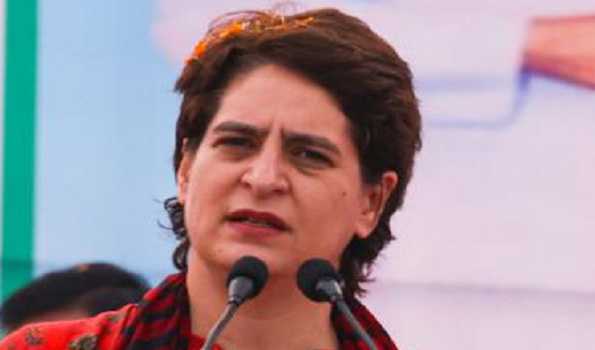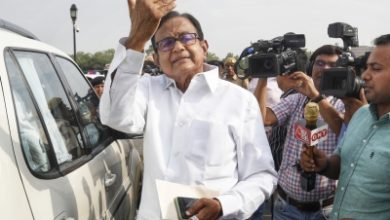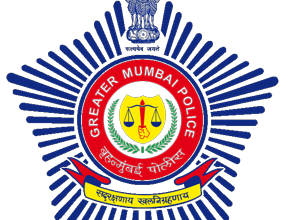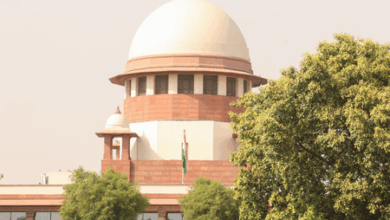75th Independence: The Mahatma’s time-keeper and a copious chronicler of his life

Painstakingly written, day-after-day, “Mahadevbhaini Dayari” (Mahadevbhais Diary) chronicles in minute detail the major events in life of Mahatma Gandhi and in the Indian Independence struggle over a quarter-of-a-century from 1917 to 1942 by his personal secretary Mahadev Desai, one of the few individuals who had the closest access to the Father of the Nation during this period.
There are anecdotes about Gandhi’s life, his peculiarities and his philosophy of life, comments about the books he had read with a lot of intriguing citations from some books et al, in short, some of the most important elements from Gandhi’s life.
“He was much more than that (a private secretary),” Verrier Elwin, the British-born Indian anthropologist, ethnologist and tribal activist, has said of Desai.
“He was in fact Home and Foreign Secretary combined. He managed everything. He made all the arrangements. He was equally at home in the office, the guest-house and the kitchen. He looked after many guests and must have saved 10 years of Gandhi’s life by diverting from him unwanted visitors.”
The Mahatma’s paternal grandson, Rajmohan Gandhi, goes even further: “Waking up before Gandhi in pre-dawn darkness, and going to sleep long after his Master, Desai lived Gandhi’s day thrice over, first in an attempt to anticipate it, next in spending it alongside Gandhi, and finally in recording it into his diary.”
It’s little wonder that Desai has been described on various occasions as Gandhi’s Boswell, a Plato to Gandhi’s Socrates and an Ananda to Gandhi’s Buddha.
The platitudes are richly deserved for the man who translated Gandhi’s autobiography, “The Story of My Experiments with Truth” into English from the Gujarati original and was posthumously conferred the Sahatiya Akademi Award for “Mahadevbhaini Dayari”.
He was at ease with Gujarati, Bengali and English and is highly regarded as a translator and writer in Gujarati. He wrote several biographies, among them, “Vir Vallabhbhai” and “Be Khudai Khidmatgar” (on Khan Abdul Gaffar Khan and his brother Khan Abdul Jabbar Khan).
A founding member of the All India Newspaper Editors’ Conference, Desai was also a regular contributor to Gandhi’s publications “Young India” and “Navjivan”, and for two years ran the “Independent” newspaper from Allahabad when Motilal Nehru requisitioned his services from Gandhi.
Born in an Avanil Brahmin family in the village of Saras in Gujarat’s Surat district, Mahadev Haribhai Desai (January 1, 1892-August 15, August 1942) was educated at the Surat High School and Bombay’s Elphinstone College, earning a BA degree. After obtaining an LLB in 1913, he took a job as an inspector at Bombay’s Central Cooperative Bank.
Desai first met Gandhi in 1915 when he sought his advice on how best to publish his book (a Gujarati translation of John Morley’s English book “On Compromise) and joined the Sabramati Ashram in 1917.
Beginning his diary on November 13 of that year, he maintained it till August 14, 1942, the day before his death of a massive heart attack at Poona’s Aga Khan Palace, where he was interred with Gandhi for participating in the Quit India movement that had been launched on August 8 of that year.
In 1919 when the colonial government arrested Gandhi in Punjab, he named Desai his heir. Desai was for the first time arrested and sentenced to a year in prison in 1921 for his writings.
In prison, Desai was aghast that the jail authorities mistreated prisoners, frequently flogging them. His report describing the life inside an Indian jail, published in “Young India” and “Navajivan”, compelled the British authorities to institute some drastic reform measures.
Desai took part in the Bardoli Satyagraha along with Sardar Patel and wrote a history of the Satyagraha in Gujarati which he translated into English as “The Story of Bardoli”.
Arrested and imprisoned for his participation in the Salt Satyagraha, he was released following the Gandhi-Irwin Pact and accompanied Gandhi to the Second Round Table Conference in London in 1931 along with Mirabehn, Devdas Gandhi and Pyarelal. He was the only person to accompany Gandhi at the meeting with King George V.
Gandhi resumed the Civil Disobedience Movement following the collapse of the Gandhi-Irwin Pact and the deadlock at the the Round Table Conference, and the new Viceroy, Lord Willingdon, determined to crush the movement, ordered a clampdown on the Indian National Congress and its activists.
In 1932, Desai was arrested again and sent to prison with Gandhi and Sardar Patel. He was re-arrested the next year and detained in Belgaum Jail. He also played a role in organising people’s movements in the princely states of Rajkot and Mysore in 1939 and was put in charge of selecting participants during the Individual Satyagraha of 1940.
Desai’s final prison term followed the Quit India Declaration of August 8, 1942. Arrested on the morning of August 9, he died six days later on August 15, the day on which India attained Independence five years later.






